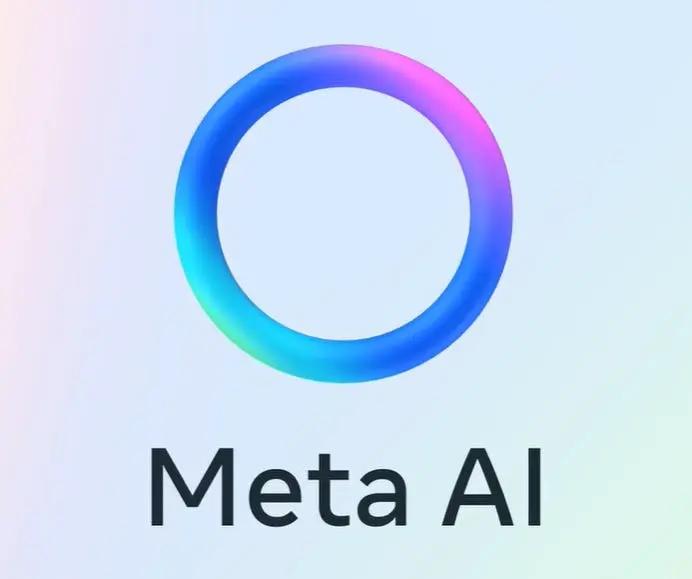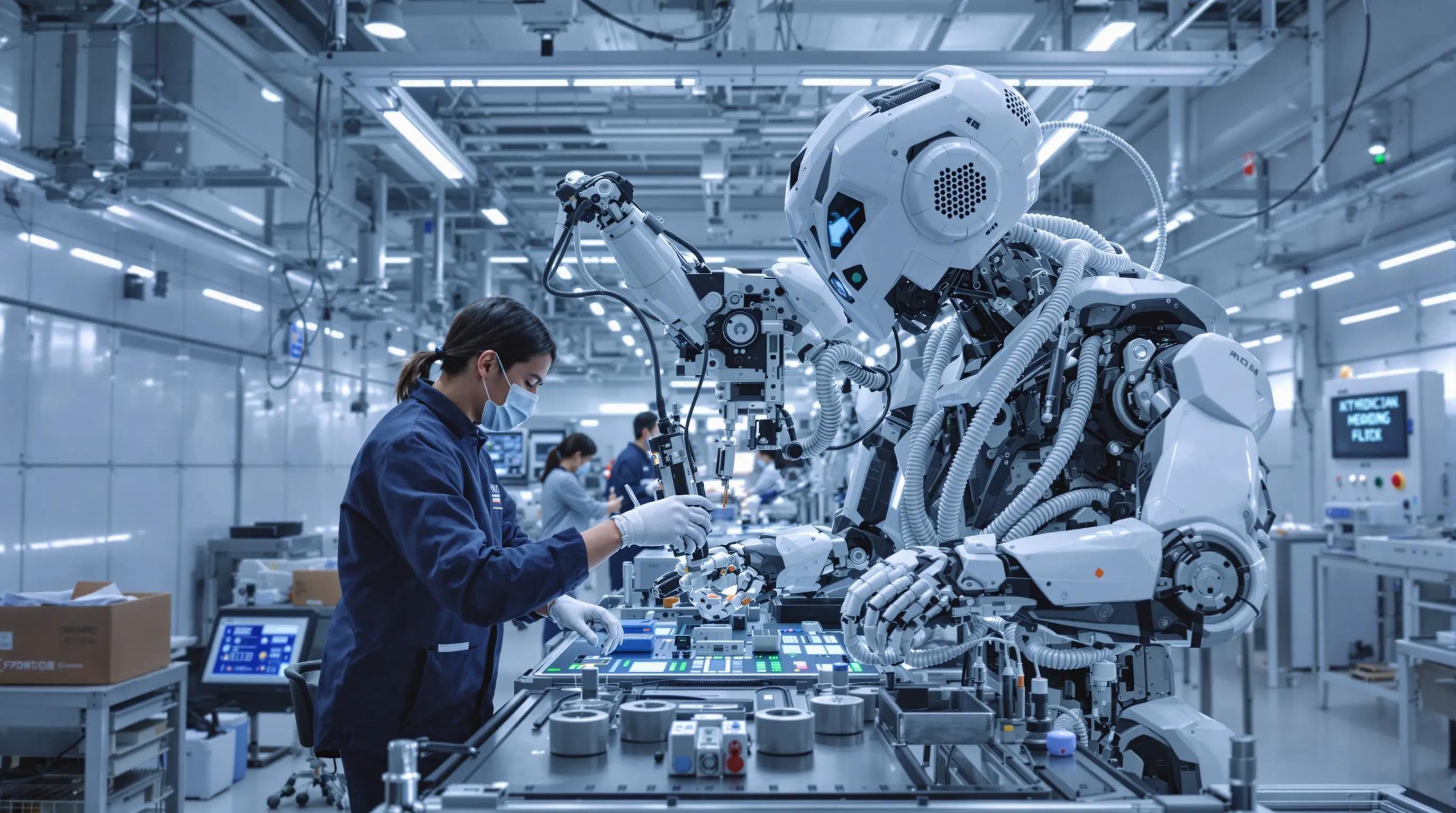August 16, 2024|12 min reading
The Evolution of AI and Meta's Pioneering Role in the Field

Artificial Intelligence (AI) has become the backbone of modern technology, influencing every aspect of our lives, from social media interactions to healthcare advancements. Among the key players driving the evolution of AI is Meta, formerly known as Facebook. Under the leadership of Mark Zuckerberg, Meta has not only contributed to the development of AI but has also shaped the way it is used and perceived in the broader technological landscape.
In this article, we will explore the significant milestones in AI’s evolution, Meta's contributions to the field, and how the company’s innovations are setting the stage for the future of AI.
AI Evolution: From Simple Algorithms to Complex Models
The journey of AI began with basic algorithms designed to perform specific tasks. Early AI systems were rule-based, relying on predefined instructions to make decisions. However, these systems lacked the ability to learn from data and adapt to new situations. The introduction of machine learning in the 1980s marked a significant shift in AI's evolution. Machine learning enabled systems to learn from data, identify patterns, and make predictions without being explicitly programmed for every task.
As computational power increased and vast amounts of data became available, AI research entered a new phase. Deep learning, a subset of machine learning, revolutionized AI by allowing systems to process and learn from large datasets using neural networks. This breakthrough led to significant advancements in areas such as image and speech recognition, natural language processing, and autonomous systems.
Today, AI has evolved into a sophisticated field with diverse applications. Large language models, like OpenAI's GPT and Meta’s LLaMA, are at the forefront of this evolution, showcasing the power of AI to understand and generate human-like text. These models are trained on massive datasets and have billions of parameters, enabling them to perform a wide range of tasks, from answering questions to creating content.
Meta’s Journey in AI: From Social Media Algorithms to Open-Source Innovation
Meta's involvement in AI began as a necessity to enhance the user experience on its social media platforms. As Facebook grew, the company faced the challenge of managing and processing vast amounts of data generated by users. AI became the key to addressing this challenge, enabling Meta to personalize content, improve ad targeting, and enhance the overall user experience.
Facebook AI Research (FAIR): Laying the Foundation
In 2013, Meta established Facebook AI Research (FAIR), signaling its commitment to advancing AI. FAIR's mission was to push the boundaries of AI by focusing on fundamental research. Unlike many corporate research labs, FAIR adopted an open approach, sharing its findings with the broader scientific community. This commitment to openness laid the foundation for Meta's future contributions to AI.
FAIR’s work has led to numerous breakthroughs in AI, including advancements in computer vision, natural language processing, and reinforcement learning. One of FAIR’s most notable contributions is in the area of image recognition, where its research has set new benchmarks for accuracy and efficiency.
LLaMA: Meta's Contribution to Large Language Models
Meta’s LLaMA (Large Language Model Meta AI) represents a significant leap in the evolution of AI. LLaMA is an open-source large language model that competes with some of the most advanced AI models in the industry. Unlike closed models developed by other tech giants, LLaMA is accessible to researchers, developers, and startups, allowing a wider community to innovate and build upon it.
The decision to open-source LLaMA reflects Meta’s belief in the power of collaboration. By making LLaMA available to the public, Meta aims to democratize access to advanced AI tools, enabling more people to contribute to the field. This approach not only accelerates the pace of innovation but also ensures that AI advancements benefit a broader segment of society.
AI-Powered Social Media: Transforming User Experiences
AI is at the core of Meta's social media platforms, shaping how content is curated and delivered to users. Algorithms powered by AI analyze user behavior, preferences, and interactions to provide personalized content that keeps users engaged. These AI-driven systems are responsible for the highly targeted ads that generate significant revenue for Meta, as well as the recommendation engines that suggest friends, groups, and pages.
However, Meta's use of AI in social media has not been without controversy. The company has faced criticism over the role of its algorithms in amplifying misinformation and creating echo chambers. In response, Meta has invested heavily in AI research aimed at improving content moderation and reducing the spread of harmful content. By leveraging AI, Meta is working to create a safer and more inclusive online environment.
Advancements in Computer Vision and AR/VR
Beyond social media, Meta has been pioneering AI applications in augmented reality (AR) and virtual reality (VR). Through its Reality Labs division, Meta is developing the next generation of AR and VR devices, such as the Oculus VR headsets and AR glasses. AI plays a crucial role in these technologies, enabling immersive experiences that blend the physical and digital worlds.
Computer vision, a field of AI that enables machines to interpret and understand visual information, is at the heart of Meta’s AR/VR innovations. Meta’s research in this area has led to significant improvements in object recognition, scene understanding, and real-time interaction. These advancements are paving the way for a future where AR and VR devices become as ubiquitous as smartphones.
The Future of AI at Meta: What’s Next?
As AI continues to evolve, Meta is poised to remain a leader in the field. The company’s commitment to open-source innovation, combined with its investments in fundamental research, positions Meta at the forefront of AI development.
AI Assistants and Personalized Experiences
One of Meta’s most ambitious AI projects is the development of AI assistants that can interact with users in a natural, conversational manner. These AI assistants, powered by large language models like LLaMA, have the potential to revolutionize how we interact with technology. Whether it's helping users navigate social media, assisting with daily tasks, or providing personalized recommendations, AI assistants could become an integral part of our digital lives.
Ethical AI: Navigating Challenges in the AI Era
With great power comes great responsibility, and Meta is acutely aware of the ethical challenges associated with AI. As the company continues to push the boundaries of AI, it is also investing in research to ensure that its AI systems are fair, transparent, and accountable. Meta’s open-source approach to AI development is a step towards greater transparency, allowing the broader community to scrutinize and improve upon its models.
Meta is also actively engaged in discussions around AI governance, working with policymakers, academics, and industry leaders to develop frameworks that ensure AI is used responsibly. The company recognizes that the future of AI will be shaped not just by technological advancements but also by the ethical principles that guide its development.
The Role of AI in the Metaverse
Meta’s vision for the future extends beyond social media and into the metaverse—a collective virtual space where people can interact, work, and play. AI will be a critical component of the metaverse, enabling everything from realistic avatars to dynamic virtual environments. Meta’s investments in AI research are laying the groundwork for this next evolution in digital interaction.
As the metaverse becomes a reality, AI will play a key role in making these virtual experiences more immersive, personalized, and accessible. From creating lifelike avatars that reflect users’ emotions to generating complex virtual worlds, AI will be at the heart of the metaverse experience.
Conclusion: Meta's Enduring Influence on AI
Meta’s journey in AI is a testament to the company’s commitment to innovation and its belief in the transformative power of technology. From the early days of social media algorithms to the development of open-source large language models, Meta has consistently pushed the boundaries of what is possible with AI.
As we look to the future, Meta’s contributions to AI are likely to have a lasting impact on the field. By democratizing access to advanced AI tools and prioritizing ethical considerations, Meta is not only shaping the future of AI but also ensuring that its benefits are widely shared.
In an era where AI is poised to revolutionize every aspect of our lives, Meta’s pioneering work serves as a reminder that the true potential of AI lies not just in the technology itself but in how it is used to create a better, more connected world.
FAQs
How has Meta contributed to the evolution of AI?
Meta has made significant contributions to AI through its research arm, Facebook AI Research (FAIR), and by developing large language models like LLaMA. The company has also pioneered AI applications in social media, AR/VR, and content moderation.
What is LLaMA, and why is it important?
LLaMA (Large Language Model Meta AI) is an open-source large language model developed by Meta. It is important because it democratizes access to advanced AI tools, allowing researchers, developers, and startups to innovate and build upon it.
How does Meta use AI in its social media platforms?
Meta uses AI to personalize content, improve ad targeting, and enhance user experience on its social media platforms. AI algorithms analyze user behavior and preferences to deliver relevant content and suggestions.
What ethical challenges does Meta face with AI?
Meta faces several ethical challenges with AI, including ensuring fairness, transparency, and accountability in its AI systems. The company is actively engaged in research and discussions around AI governance to address these challenges.
What role will AI play in the metaverse?
AI will be a critical component of the metaverse, enabling realistic avatars, dynamic virtual environments, and personalized experiences. Meta’s AI research is laying the groundwork for the development of these technologies.
How does Meta's open-source approach benefit the AI community?
Meta’s open-source approach allows a broader community of researchers, developers, and startups to access and build upon its AI models. This collaborative effort accelerates innovation and ensures that AI advancements benefit a wider audience.
Tools referenced

Meta AI
Meta AI, built with Llama 3, is an advanced AI tool that enables complex reasoning, visualization, and problem-solving.

Meta Llama 3
Llama 3.1 by Meta AI is an open-source AI model that can be fine-tuned, distilled, and deployed anywhere. Available in 8...
Explore more

NVIDIA and Japan: Driving the AI Revolution in Industry
Explore NVIDIA's role in Japan’s AI revolution, from AI agents to robotics, reshaping industries and powering innovation...

AI Translation Glasses: Breaking Language Barriers with Augmented Reality
Discover how AI translation glasses are transforming real-time communication with instant language translation, powered ...

Everything You Need to Know About GPT-5: The Future of AI
Discover everything about GPT-5, the future of AI, its advancements, and its groundbreaking impact on natural language p...
